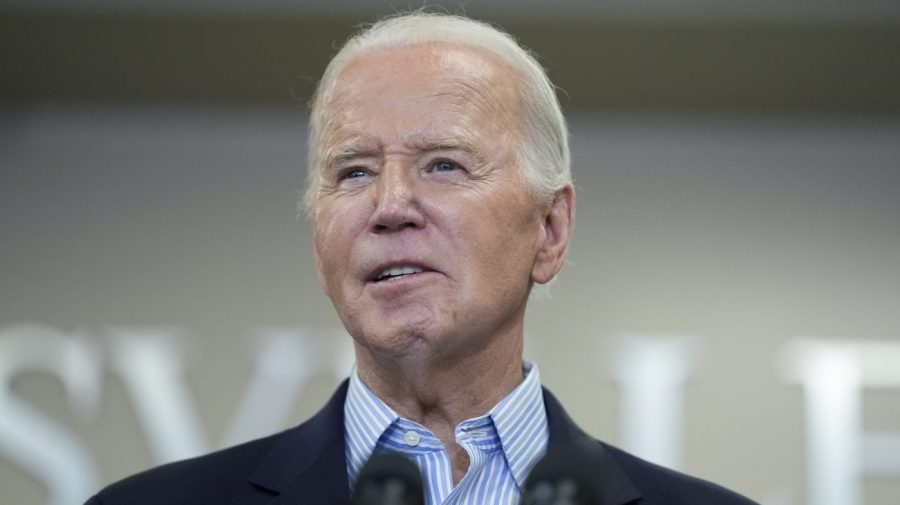
Four vulnerable House Democrats on Wednesday bucked their party on a vote to pass the annual Department of Veterans Affairs (VA) and military construction funding bill, just days after the White House threatened to veto the measure over partisan riders the party has termed “poison pills.”
The GOP-led House voted largely along party lines on Wednesday morning to pass the bill, which calls for about $379 billion in overall funding for fiscal year 2025 for the VA and military construction and housing programs. Two Republicans voted against the measure.
A chunk of the bill’s funding includes more than $337 billion in VA funding, about a third of which goes toward veterans’ medical care, and north of $17 billion for Department of Defense military construction and family housing.
Reps. Marie Gluesenkamp Perez (D-Wash.), Jared Golden (D-Maine), Vicente Gonzalez (D-Texas) and Mary Peltola (D-Alaska) joined almost all Republicans in advancing the bill, while Reps. Tom McClintock (R-Calif.) and Matt Rosendale (R-Mont.) bucked their party and voted against the measure.
The Hill has reached out to the members’ offices for comment.
Democrats have come out strongly against the bill, which includes a rider they say would restrict the VA from carrying out a Biden administration rule that allows veterans to have greater access to abortion counseling and abortions in certain circumstances.
Under the rule, the VA is allowed to provide access to abortions for veterans if their life or health is endangered, or if they became pregnant because of rape or incest.
Democrats have also targeted other riders they say would block the VA from implementing diversity, equity, and inclusion initiatives and block access to gender-affirming care, among other measures.
The Biden administration cited similar measures in its opposition to the funding plan earlier this week, knocking Republicans for “again wasting time with partisan bills” containing “numerous, partisan policy provisions with devastating consequences.”
In a statement on Wednesday, Gluesenkamp Perez criticized Republicans for involving what she described as “culture wars” in the bill and said her decision to back it anyway was due to the funding level veterans stood to see.
“This bill has a significantly better level of funding for veterans than enacted in FY24 – including support for veterans’ healthcare, claim processing, caregivers, toxic exposure care, facility construction, and more,” she said.
“The legislation also included two of my amendments to address failures for veterans in Lewis County impacted by the Chehalis VA clinic closure and for veterans in Skamania County who lost federal funding eligibility for no-cost transportation to VA medical appointments,” she continued.
“Unfortunately, despite the important provisions for our veterans, extreme Members of Congress used this bill to propel senseless, partisan culture wars. I voted against these harmful amendments, and I refuse to play into clickbait politics.”
Golden in a statement said, “America’s service members and veterans should not be treated as political pawns for partisan games. There is still a long way to go before this bill becomes law and I am confident that many concerns that have been raised — many of which I share — will be resolved. In the meantime, I voted to support our service members.”
The Cook Political Report rates Gluesenkamp Perez’s and Golden’s races as “toss ups” as the 2024 election season heats up. The other three Democrats are also running in what the nonpartisan election forecaster has regarded as “competitive races.”
The bill marks the first of 12 partisan funding plans that Republicans hope to pass before the August recess – a month before the government faces a funding lapse.
“The bill makes good on the Republican commitment to bring bills to the floor that comply with the Fiscal Responsibility Act, while honoring our commitment to our nation’s veterans and our troops,” Rep. John Carter (R-Texas), who heads the subcommittee that crafted the bill, said of the bill this week.
However, the bill is seen as one of the easier funding plans GOP leadership is working to pass this summer, as coming plans like the annual bills funding the departments of Justice, Health and Human Services and Agriculture that exposed rifts in the conference last year still lie in wait.














